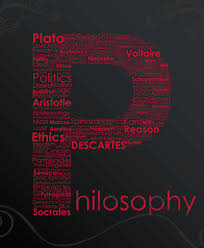UPSC Mains Syllabus – For Philosophy Optional Subject.
Philosophy Optional syllabus for UPSC Mains exam focuses on the candidates’ ability to understand the subject and apply the knowledge to society in India.Continue Reading UPSC Mains Syllabus – For Philosophy Optional Subject.
The topics included in this subject area related to the history and evolution of philosophy, religion, and social structures. Philosophy Optional Subject has two subjective papers (paper I and Paper II). Each paper is of 250 marks with a total of 500 marks.
Paper-I
History and Problems of Philosophy
1. Plato and Aristotle: Ideas; Substance; Form and Matter; Causation; Actuality and Potentiality.
2. Rationalism (Descartes, Spinoza, Leibniz): Cartesian Method and Certain Knowledge; Substance; God; Mind-Body Dualism; Determinism and Freedom.
3. Empiricism (Locke, Berkeley, Hume): Theory of Knowledge; Substance and Qualities; Self and God; Scepticism.
4. Kant: Possibility of Synthetic a priori Judgments; Space and Time; Categories; Ideas of Reason; Antinomies; Critique of Proofs for the Existence of God
5. Hegel: Dialectical Method; Absolute Idealism
6. Moore, Russell and Early Wittgenstein: Defence of Commonsense; Refutation of Idealism; Logical Atomism; Logical Constructions; Incomplete Symbols; Picture Theory of Meaning; Saying and Showing.
7. Logical Positivism: Verification Theory of Meaning; Rejection of Metaphysics; Linguistic Theory of Necessary Propositions.
9. Phenomenology (Husserl): Method; Theory of Essences; Avoidance of Psychologism.
10. Existentialism (Kierkegaard, Sartre, Heidegger): Existence and Essence; Choice, Responsibility and Authentic Existence; Being-in-the –world and Temporality.
11. Quine and Strawson: Critique of Empiricism; Theory of Basic Particulars and Persons.
12. Ca-rva-ka : Theory of Knowledge; Rejection of Transcendent Entities.
13. Jainism: Theory of Reality; Saptabhan(ginaya; Bondage and Liberation.
14. Schools of Buddhism: Prati-tyasamutpa-da; Ksanikavada, Naira-tmyava-da
15. Nya-ya- Vais’esika: Theory of Categories; Theory of Appearance; Theory of Prama-na; Self, Liberation; God; Proofs for the Existence of God; Theory of Causation; Atomistic Theory of Creation.
16. Sa-mkhya: Prakrti; Purusa; Causation; Liberation
17. Yoga: Citta; Cittavrtti; Klesas; Samadhi; Kaivalya.
18. Mima-msa-: Theory of Knowledge
19. Schools of Veda-nta: Brahman; I-s’vara; A-tman; Jiva; Jagat; Ma-ya-; Avidya-; Adhya-sa; Moksa; Aprthaksiddhi; Pancavidhabheda
20. Aurobindo: Evolution, Involution; Integral Yoga.
Paper-II
Socio-Political Philosophy
1. Social and Political Ideals: Equality, Justice, Liberty.
2. Sovereignty: Austin, Bodin, Laski, Kautilya.
3. Individual and State: Rights; Duties and Accountability
4. Forms of Government: Monarchy; Theocracy and Democracy.
5. Political Ideologies: Anarchism; Marxism and Socialism
6. Humanism; Secularism; Multiculturalism.
7. Crime and Punishment: Corruption, Mass Violence, Genocide, Capital Punishment.
8. Development and Social Progress.
9. Gender Discrimination: Female Foeticide, Land and Property Rights; Empowernment.
10. Caste Discrimination: Gandhi and Ambedkar
Philosophy of Religion:
1. Notions of God: Attributes; Relation to Man and the World. (Indian and Western).
2. Proofs for the Existence of God and their Critique (Indian and Western).
3. Problem of Evil.
4. Soul: Immortality; Rebirth and Liberation.
5. Reason, Revelation and Faith.
6. Religious Experience: Nature and Object (Indian and Western).
7. Religion without God.
8. Religion and Morality.
9. Religious Pluralism and the Problem of Absolute Truth.
10. Nature of Religious Language: Analogical and Symbolic; Cognitivist and Non- cognitive.
Please subscribe here to get all future updates on this post/page/category/website


 +919674493673
+919674493673  mailus@wbcsmadeeasy.in
mailus@wbcsmadeeasy.in







































































































